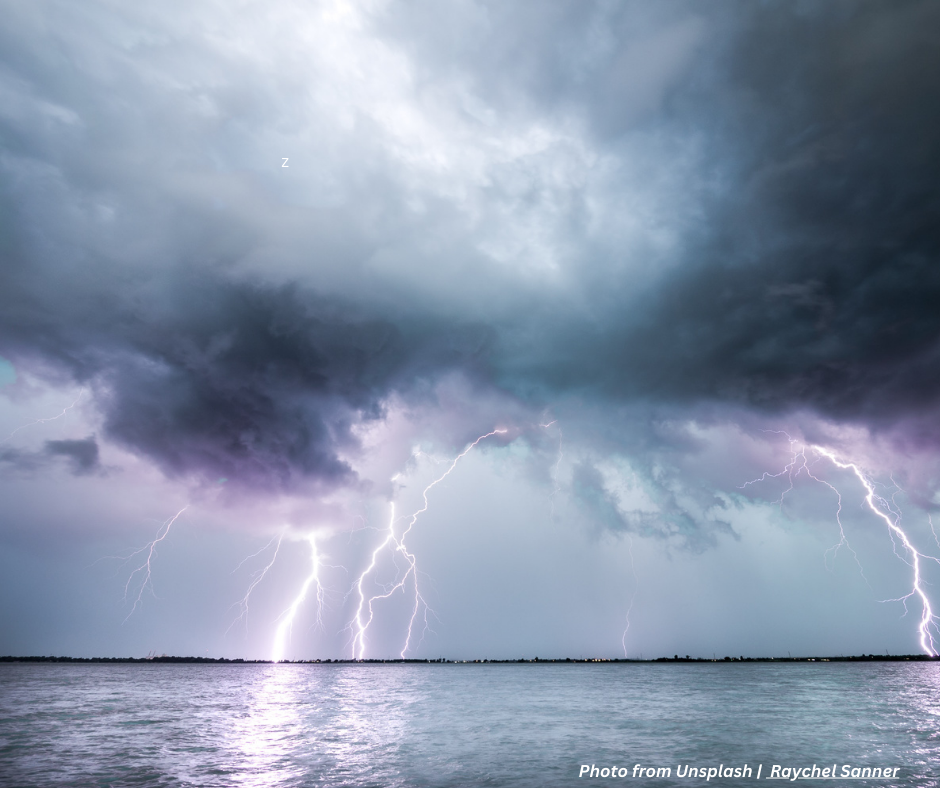
Photo from Unsplash | Raychel Sanner
The following post does not create a lawyer-client relationship between Alburo Alburo and Associates Law Offices (or any of its lawyers) and the reader. It is still best for you to engage the services of a lawyer or you may directly contact and consult Alburo Alburo and Associates Law Offices to address your specific legal concerns, if there is any.
Also, the matters contained in the following were written in accordance with the law, rules, and jurisprudence prevailing at the time of writing and posting, and do not include any future developments on the subject matter under discussion.
AT A GLANCE:
Except in cases expressly specified by the law, or when it is otherwise declared by stipulation, or when the nature of the obligation requires the assumption of risk, no person shall be responsible for those events which could not be foreseen, or which, though foreseen, were inevitable. (Article 1174, Civil Code)
A fortuitous event is an event which cannot be foreseen, or which, although foreseeable, cannot be avoided.
Fortuitous events by definition are extraordinary events not foreseeable or avoidable. It is therefore, not enough that the event should not have been foreseen or anticipated, as is commonly believed but it must be one impossible to foresee or to avoid. The mere difficulty to foresee the happening is not impossibility to foresee the same. (Roberto Sicam and Agencia de R.C. Sicam, Inc. v. Lulu Jorge, G.R. No. 159617, August 08, 2007)
As a general rule, the happening of a fortuitous event excuses the debtor from liability for the non-performance of obligation except:
a) in cases expressly specified by law;
b) when it is otherwise declared by stipulation; and
c) when the nature of the obligation requires the assumption of risk.
The law says:
“Except in cases expressly specified by the law, or when it is otherwise declared by stipulation, or when the nature of the obligation requires the assumption of risk, no person shall be responsible for those events which could not be foreseen, or which, though foreseen, were inevitable.” (Article 1174, Civil Code)
However, to exempt the debtor from liability for non-performance of obligation due to a fortuitous event, several requisites must concur.
Jurisprudence says:
In order to be considered a fortuitous event, however,
(1) the cause of the unforeseen and unexpected occurrence, or the failure of the debtor to comply with his obligation, must be independent of human will;
(2) it must be impossible to foresee the event which constitute the caso fortuito, or if it can be foreseen it must be impossible to avoid;
(3) the occurrence must be such as to render it impossible for the debtor to fulfill his obligation in any manner; and
(4) the obligor must be free from any participation in the aggravation of the injury resulting to the creditor. (Sulpicio Lines v. Napoleon Sesante, G.R. No. 172682, July 27, 2016)
In the case of Roberto Sicam and Agencia de R.C. Sicam, Inc. v. Lulu Jorge (G.R. No. 159617, August 08, 2007), the Supreme Court ruled that:
“An act of God cannot be invoked to protect a person who has failed to take steps to forestall the possible adverse consequences of such a loss. One’s negligence may have concurred with an act of God in producing damage and injury to another; nonetheless, showing that the immediate or proximate cause of the damage or injury was a fortuitous event would not exempt one from liability. When the effect is found to be partly the result of a person’s participation — whether by active intervention, neglect or failure to act — the whole occurrence is humanized and removed from the rules applicable to acts of God.”
Read also: EFFECT OF DESTRUCTION OF THING LEASED BY FORTUITOUS EVENT
Alburo Alburo and Associates Law Offices specializes in business law and labor law consulting. For inquiries regarding taxation and taxpayer’s remedies, you may reach us at info@alburolaw.com, or dial us at (02)7745-4391/0917-5772207.
All rights reserved.


